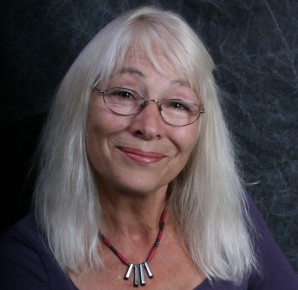Other than succumbing to melancholy while he was in Pembroke College, according to Boswell, Samuel Johnson ‘…was generally seen lounging at the College gate, with a circle of young students round him, whom he was entertaining with wit, and keeping from their studies, if not spiriting them up to rebellion against the College discipline, which in his maturer years he so much extolled.’
In fact, Johnson didn’t think much of the college tutors and when Taylor, someone he knew from his school days, went to Christchurch and was taught by a Mr. Bateman whose lectures were thought to be excellent, Johnson used to get them second-hand from Taylor ‘till his poverty being so extreme, that his shoes were worn out, and this feet appeared through them, he saw that this humiliating circumstance was perceived by the Christ-Church men, and he came no more. He was too proud to accept of money, and somebody having set a pair of new shoes at his door, he threw them away with indignation.’ Boswell mentions the fact that it might have been due to ‘superstitious mortification’ that he threw them away, and goes on to tell us about Ignatious Loyola, the founder of the order of Jesuits, who, ‘when he arrived at Goa, after having made a severe pilgrimage through the eastern desasrts, [sic?] persisted in wearing his miserable shattered shoes, and when new ones were offered him, rejected them as an unsuitable indulgence.’
When Johnson’s father became insolvent, Johnson was forced to leave college in the autumn of 1731 without a degree, having been there for just over three years. His father died in the same year, leaving Johnson twenty pounds.
Boswell might well have been reflecting on his own woeful lechery and drunkenness when he goes on to write about Johnson’s relationships with women: ‘In a man whom religious education has secured from licentious indulgences, the passion of love, when once it has seized him, is exceedingly strong; being unimpaired by dissipation, and totally concentrated in one object.’ A couple of years after he left college, Johnson met Mrs Porter, a widow, and fell for her heavily. Boswell talked to Mrs Porter’s daughter about the first meeting between the two of them: ‘his appearance was very forbidding: he was then lean and lank, so that his immense structure of bones was hideously striking to the eye and the scars of the scrophula were deeply visible.’ [As a child he contracted the disfiguring disease King’s- evil, or Scrofula, which presents as ugly boil- like protrusions on the face and neck, and is in fact a form of tuberculosis of the lymph glands.] She went on to say: ‘He also wore his hair, which was straight and stiff, and separated behind: and he often had, seemingly, convulsive starts and odd gesticulations, which tended to excite at once surprise and ridicule.’ I think ‘He also wore his hair…’ might mean he wasn’t wearing a wig.
Mrs Porter told her daughter that Johnson was ‘…the most sensible man that I ever saw in my life.’
Mrs Porter, or Tetty, as Johnson came to call her, had been born into the ancient family of Jervis who were once wealthy and powerful, and according to a Mr Garrick her person and manner ‘were by no means pleasing to others.’ Boswell imagines that she must have been intelligent and talented, and that perhaps the implication is that Johnson would’ve been more interested in her cleverness than her appearance.
Johnson’s mother didn’t object to her twenty-seven year old son marrying a woman of forty eight, but her sons were ‘much disgusted with her for her second marriage, perhaps because they being struggling to get advanced in life, were mortified to think that she had allied herself to a man who had not any visible means of being useful to them.’ Once while Tetty was ill in bed, one of her sons came to call on her, but on hearing she was ill, left again and Boswell was told that ‘Mrs. Johnson enraptured to hear her son was below, desired the maid to call him as she longed to embrace him.’ It was the only time the son had ever made an effort to see her, and when the maid told her that he’d left, she was so upset by it that she was said to have decided that he ‘… is uniformly undutiful; so I conclude like many other sober men, he might once in his life be drunk, and in that fit nature got the better of his pride.’ In other words, because her son had never visited her before, he must have been drunk on the day that he did, and feeling love for his mother, he appeared on the doorstep – but was soon gone again.
The marriage took place in Derby, and Johnson and Tetty went there by horseback. Johnson told Boswell that his wife to be had ‘…read the old romances, and had got into her head the fantastical notion that a woman of spirit should use her lover like a dog. So, Sir, at first she told me that I rode too fast, and she could not keep up with me: and, when I rode a little slower, she passed me, and complained that I lagged behind. I was not to be made the slave of caprice; and I resolved to begin as I meant to end. I therefore pushed on briskly, till I was fairly out of her sight. The road lay between two hedges, so I was sure she could not miss it; and I contrived that she should soon come up with me. When she did, I observed her to be in tears.’
Boswell’s thoughts about that were that although Johnson ‘shewed a manly firmness’ and he wrote: ‘…we find very remarkable evidence that his regard and fondness for her never ceased, even after her death.’



